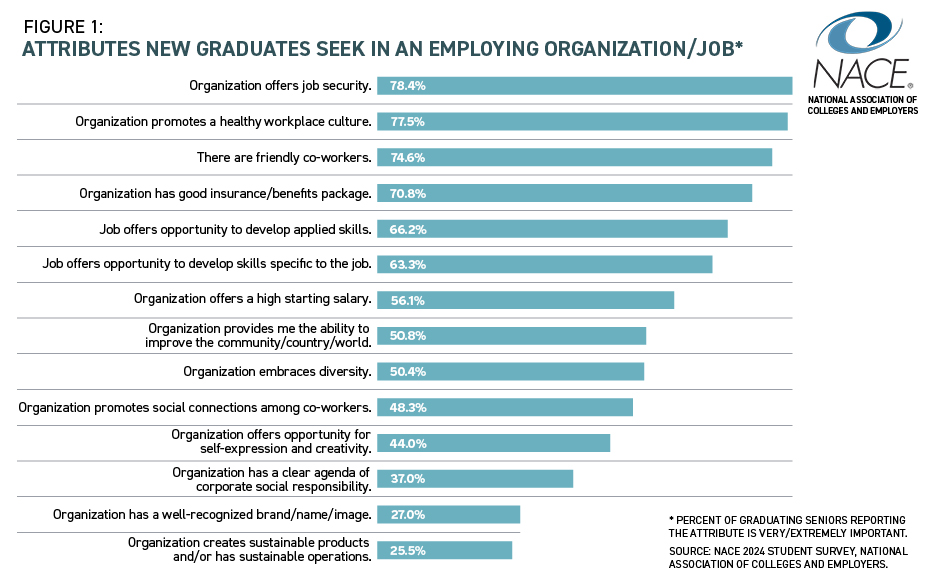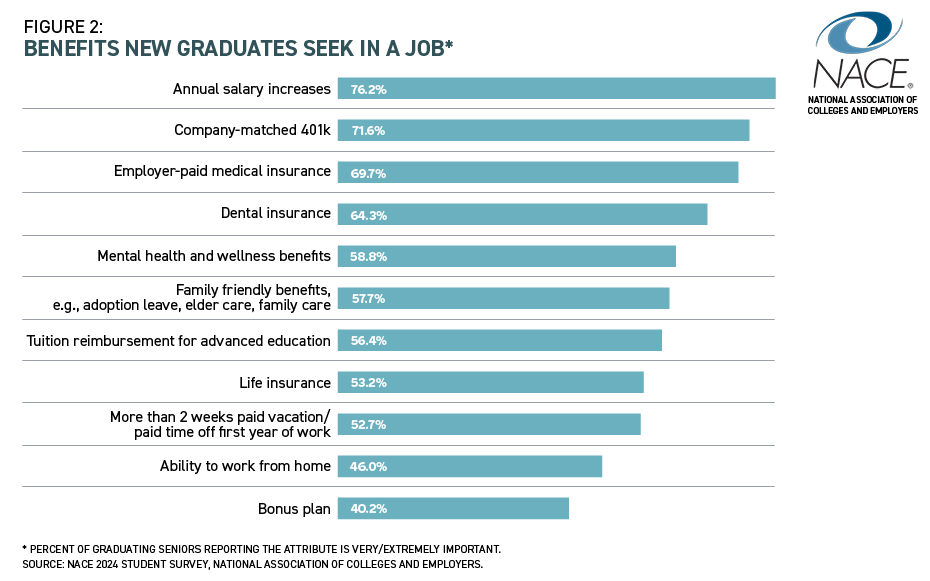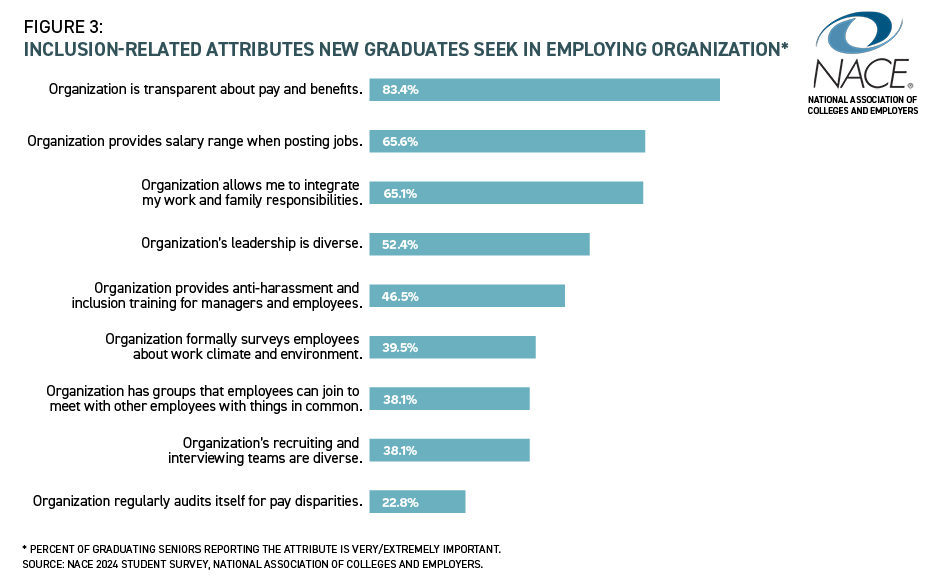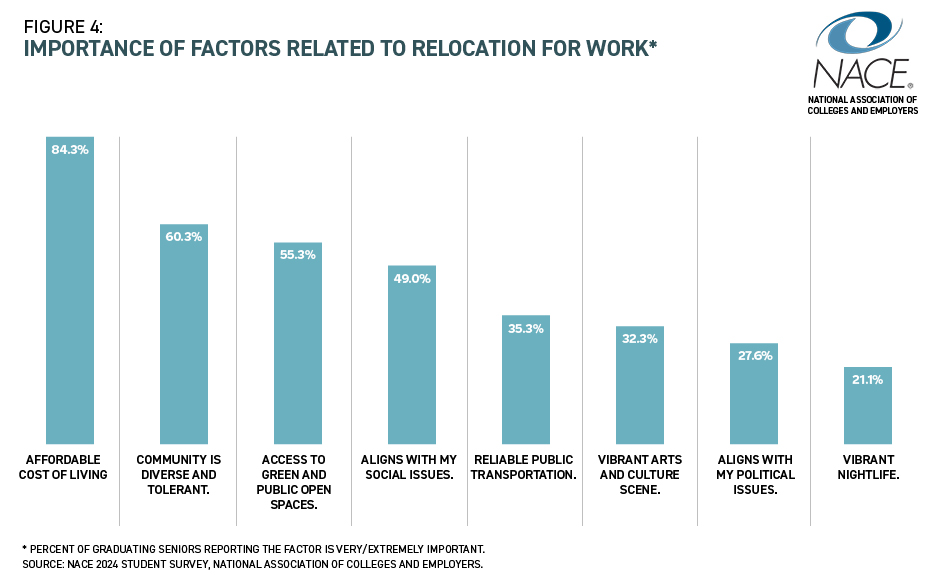Graduating seniors are very clear about what they are looking for in a job: economic security.
For the nearly 2,300 bachelor’s degree level graduates taking part in NACE’s annual student survey, economic security is defined as job stability, annual salary increases, and a good benefits package—featuring a company-matched 401k and employer-paid health insurance. These were the top attributes they cited in their dream job. (See Figures 1 and 2.)
Underscoring the value they place on security: The majority (84%) reported that an affordable cost of living would be a key factor in their decision to relocate for a job. (See Figure 4.)


Wanted: A Healthy Workplace Culture, Plus Inclusivity
Responding seniors were split about where they would like to work—slightly more than half (51%) want to work exclusively in-person, while 43% prefer a hybrid work environment. (Just 6% want to work exclusively in a virtual environment.)
Although they may not agree on their preferred physical work environment, they do agree on the atmosphere: More than three-quarters of responding seniors said they are looking for employers that promote a healthy workplace culture. This includes friendly co-workers, cited by three-quarters as important. (See Figure 1.)
An inclusive organization is also important to new graduates. Asked about salary transparency, which underpins equity among employees, more than four out of five (83.4%) want employers to be transparent about pay and benefits, and 66% want the organization to provide the salary range when posting a job. They also favor organizations that support their ability to integrate work and family responsibilities. (See Figure 3.)


NACE’s 2024 Student Survey, sponsored by Indeed, was conducted March 13 through May 15, 2024; a total of 20,482 college students took part, including 2,281 graduating seniors earning bachelor’s degrees. A report and dashboard featuring results for the Class of 2024 will be available in the fall.






